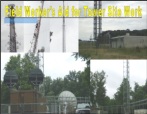Podcast: Play in new window | Download | Embed
Subscribe: Apple Podcasts | RSS
Let’s talk about the low bid and why people may intentionally underbid. Here’s the deal, a low bid could be for any reasons.
- They had a fair bid for the work.
- They have the best process for the work.
- They are local and there is no travel built-in.
- They have done it before for this customer and know exactly what to do for this customer.
- Underbid to steal work from the competition.
- Underbidder wants to get in with this customer really bad.
- Underbidder wants to make it up in change orders.
- Underbidder wants to show what their company can do by getting the work and sacrificing margin on this one job.
- Maybe the contractor just don’t know any better.
- Some underbidders have no intention of paying their contractors.
When doing a national wireless offer, there could be fewer layers between the customer and contractor. Unfortunately it normally runs like this because logistics make it hard to work with so many individual contractors.
Customer ⇒ national turf vendor ⇒ regional vendor ⇒ local vendor ⇒ Tower crew/RF Engineer/Drive Team
Each layer below the customer takes a cut. Some cut deeper than others. However, most customers like a SPOC, single point of contact, which is usually a PM or a PM firm.
Some underbidders may have no intention of paying their contractors. It happens so often in the wireless industry. So many vendors don’t trickle the money down, they just don’t pay unless they have to. This is a problem that needs to be rectified by taking them to court and  creating a black list of companies that do this. How do we do it? If someone doesn’t pay you, don’t work for them again ever after taking them to small claims court. Make sure they know that you take it very seriously. Now this sounds easy, right? If you are a small company then you know that to take time off is to lose money. However, it can’t hurt to file the paperwork, can it? Take the time to file, to make sure the company gets served. Take the time to let your customer know that you mean business. It sucks now but it will pay off in the long run. Then make a list of people not to work for, remember why you won’t work for them. Ask the contact why they didn’t pay and log it. You may be called to share this with someone in the future, that is up to you what you do with it but if you have a team, let them know who you don’t want to work for!
creating a black list of companies that do this. How do we do it? If someone doesn’t pay you, don’t work for them again ever after taking them to small claims court. Make sure they know that you take it very seriously. Now this sounds easy, right? If you are a small company then you know that to take time off is to lose money. However, it can’t hurt to file the paperwork, can it? Take the time to file, to make sure the company gets served. Take the time to let your customer know that you mean business. It sucks now but it will pay off in the long run. Then make a list of people not to work for, remember why you won’t work for them. Ask the contact why they didn’t pay and log it. You may be called to share this with someone in the future, that is up to you what you do with it but if you have a team, let them know who you don’t want to work for!
Back to the underbidder. If you bid too low then be prepared to take a  loss. That’s what it means to underbid! PMs don’t’ like change orders unless they are needed, and often they are needed. Contractors like change orders if it adds money to the bottom line. However, when a contractor’s reputation is that they ask for too many change orders, then they have a hard time winning bids. Make sure that you can justify every change order!
loss. That’s what it means to underbid! PMs don’t’ like change orders unless they are needed, and often they are needed. Contractors like change orders if it adds money to the bottom line. However, when a contractor’s reputation is that they ask for too many change orders, then they have a hard time winning bids. Make sure that you can justify every change order!
What would be a perfect world? To get paid on time every time! Simple, but the terms often suck. It’s hard to put food on the table with net 120 terms and your contractors are net 30 and their employees are paid weekly. Many contractors want to get paid net 30 because they have employees that get paid weekly. Get it? They are paying the people that do the work!
My recommendation is don’t underbid, be the best worker. Some say this won’t win as much business. Especially where so many companies want the low bidder, not the best worker. Customers want terms like net 90 to net 120, yet they want to start making money on their system from day one of turn up. Interesting how they have money to invest and all you are asking for is money to feed your family. If only we could all get on the same page. Unfortunately  the underbidders will always be out there. The good news is that some customers like the best workers and will stick with the contractor that sticks to the price while doing good work, and will show up on time. I know that these companies get steady work. There is a glimmer of hope by cutting out some layers and showing the potential of some of these companies.
the underbidders will always be out there. The good news is that some customers like the best workers and will stick with the contractor that sticks to the price while doing good work, and will show up on time. I know that these companies get steady work. There is a glimmer of hope by cutting out some layers and showing the potential of some of these companies.
So, what to do? Get efficient, create better processes, find ways to cut costs and automate! Do good work! Quality matters! I agree that there are always  ways to do the work more efficiently and for less money. That’s the real goal, improve processes, cut time and costs and still deliver quality work. If this was the focus of most companies, then life would be pretty good. Let’s concentrate on the process, better ways to do things. Listen to the people on the front lines so you can make changes to the design up front. Then you can be the low bidder with the best margins if you can become very efficient and find balance between great work, quality, efficient processes, and profitability. This will make the customer rely on your for more and more work.
ways to do the work more efficiently and for less money. That’s the real goal, improve processes, cut time and costs and still deliver quality work. If this was the focus of most companies, then life would be pretty good. Let’s concentrate on the process, better ways to do things. Listen to the people on the front lines so you can make changes to the design up front. Then you can be the low bidder with the best margins if you can become very efficient and find balance between great work, quality, efficient processes, and profitability. This will make the customer rely on your for more and more work.
Be smart, be safe, and pay attention to safety!
The Wireless Deployment book should be out next week! Don’t you want to learn all you can about deployment steps for small cells and CRAN? Helping you identify problems throughout the process, the entire process, so that you can avoid problems in the work. Design, surveys, installations, commissioning, and optimization covered here with an emphasis on planning for all stages to handoff and make the deployment successful!
Tell me what you think and sign up for my Views and News letter!
 I am asking you to help the Hubble Foundation because if you don’t help these families, who will? What if it were you? Would you want help? Who would help you if you were hurt? Who would help your family, your spouse, your children if something happened to you? Do you see the people who are hurt?
I am asking you to help the Hubble Foundation because if you don’t help these families, who will? What if it were you? Would you want help? Who would help you if you were hurt? Who would help your family, your spouse, your children if something happened to you? Do you see the people who are hurt?
























